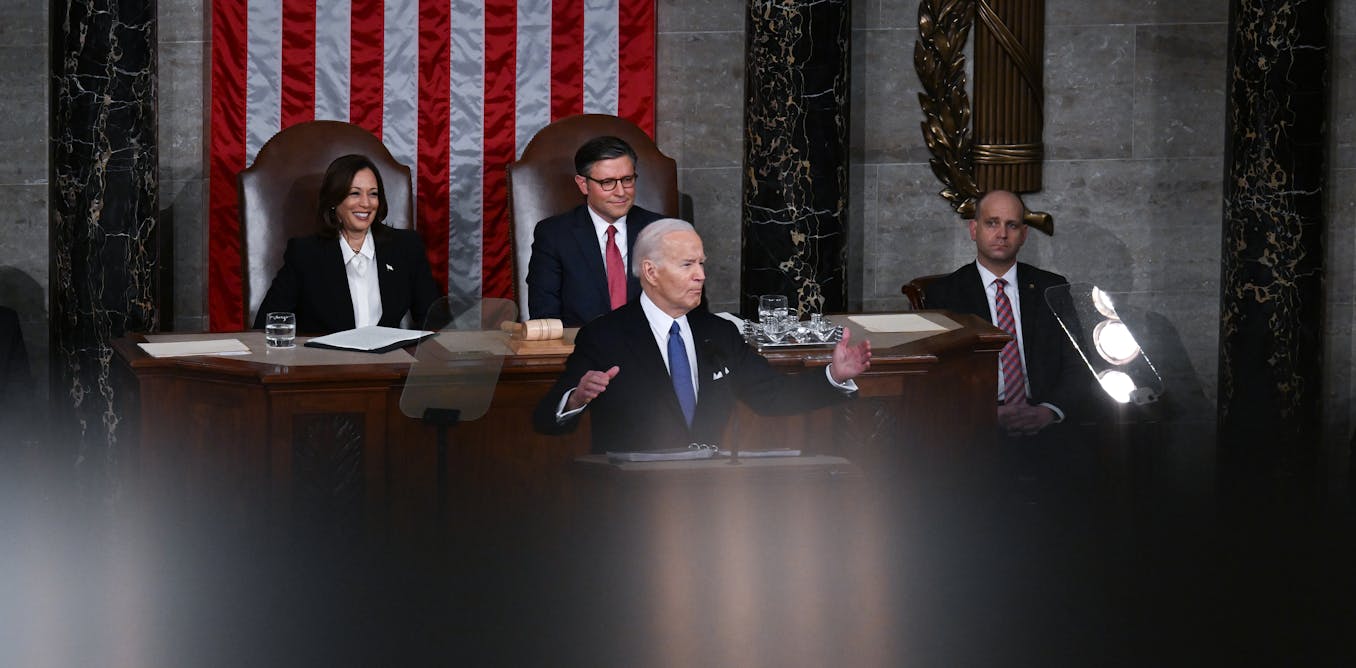Politics
Why Biden's high-stakes Israel trip could be fraught with political risk: ANALYSIS
It's an audacious move at a tenuous time -- a show of solidarity that could backfire in any number of directions, both inside a dangerous region and back home.
For President Joe Biden, a hastily arranged yet meticulously planned visit to Israel on Wednesday, in the wake of Hamas' terror attack earlier this month, is an opportunity to show support for America's closest ally in the Middle East. It's also a potential chance to iNFLuence Israeli Prime Minister Benjamin Netanyahu as he plans steps that could shake regional Politics for years to come.
Biden also runs the risk of highlighting political divisions on Israel that are most pronounced inside his own Democratic Party, particularly around how Netanyahu's government treats Palestinians, the West Bank and Gaza. The dynamics that might give Biden leverage at a dangerous moment could also leave some of the fallout squarely at his feet, a year before he's up for reelection.
Beyond the obvious security risks -- the Secret Service issued an unusual statement broadly describing the "immensely intricate" planning around the president's movements in Israel -- the moment Biden is choosing for the visit is complicated by substantial uncertainties.
Some 10 days after Hamas' unfathomable assault on Israelis, the fate of upwards of 200 hostages held by the militants is in the balance. With Israel still holding back on an expected ground offensive into Gaza, the Palestinian territory Hamas controls, explosions at a hospital in Gaza on Tuesday reportedly left hundreds dead in what could be only a taste of the humanitarian toll to come.
Palestinian Authority President Mahmoud Abbas sent word that he was canceling a planned meeting with Biden and, shortly after, the White House said that Biden was postponing his entire trip to Jordan, where he would have talked with Abbas, but would "remain regularly and directly engaged" with both him, Jordans' King Abdullah II and Egyptian Abdel Fattah El-Sisi.

A Democratic member of Congress who has been harshly critical of Israel, Michigan Rep. Rashida Tlaib, who is also the first Palestinian American elected to the House, went so far as to suggest in a posting on X that Biden was in part responsible for the bombing at the hospital, tagging the president and calling it "your war."
"We will remember where you stood," Tlaib posted.
It's a sentiment being reinforced by Republican candidates for president, albeit from another -- ostensibly more staunchly pro-Israel -- direction. Several have faulted Biden's stance on Iran as emboldening Hamas' attack, given Iran's role as a key sponsor of the group, with Sen. Tim Scott, R-S.C., arguing that Biden has "blood on his hands" for showing "weakness" that endangered Israelis.
That view appears less widespread in Israel, which is one reason Netanyahu might be welcoming the U.S. president this week. Biden's initial response to the attacks drew a measure of bipartisan praise for his moral clarity.
"We must be crystal clear: We stand with Israel. We stand with Israel," Biden said last week. "And we will make sure Israel has what it needs to take care of its citizens, defend itself and respond to this attack."
America is also fairly united behind Israel for the moment, at least so far as any issue can bring the nation together in 2023. An ABC News/Ipsos poll that was in the field in the days following Hamas' strikes on Israel found 49% of Americans saying the U.S. was doing the right amount to support Israel, with another 29% saying the country was doing too little. Fewer than one in five said Israel was getting too much support.
At the same time, 54% of Americans said they disapproved of Biden's initial handling of the coNFLict, with 62% disapproval of his handling of Iran. Those numbers are in line with subpar perceptions of the president across a range of domestic and foreign-policy issues covered in the poll.

The president's public commentary has hinted at the difficulties ahead. Biden was stark in his warnings against Hezbollah, a Lebanese militant group to Israel's north, and Iran potentially seeking to take advantage of the situation in Israel -- "don't, don't, don't," he said on "60 Minutes" -- while at the same time saying it would be a "big mistake" for Israel to seek to reoccupy Gaza.
For better or worse, Biden's time in office has come to be defined by major international crises. The chaotic U.S. withdrawal in Afghanistan coincided with a dip in his approval ratings that has yet to turn around.
Meanwhile, his support for Ukraine against Russia's invasion -- including a cloaked-in-secrecy trip he made to Kiev last winter -- is considered by his team to be a high point. It has been featured prominently in early campaign messaging.
Biden will arrive on Israeli soil that has been changed by the horrors of the last few weeks, and Biden has talked publicly of his deep understanding of the nation's troubled History. Israel, as always, needs American support, though what that means will be complicated by realities both in the Middle East and in the United States.
-

 Politics4m ago
Politics4m agoDemocrats in Trump Districts Are Outraising Republicans in Biden Districts
-

 Politics6h ago
Politics6h agoBiden’s New Title IX Rules Add Campus Protections for LGBTQ+ Students
-

 Politics6h ago
Politics6h ago12 Jurors Selected in Trump Hush Money Trial as Prosecutors Ask for Trump to Face Contempt
-

 Politics12h ago
Politics12h agoKennedy Family Endorses Biden Against RFK Jr.
-

 Politics14h ago
Politics14h agoTikTok fears point to larger problem: Poor media literacy in the social media age
-

 Politics18h ago
Politics18h agoRhode Island Weekend Weather for April 20/21, 2024 – John Donnelly
-

 Politics18h ago
Politics18h agoBurn with Kearns: Ignite Your Transformation: Join the 90-Day Fitness Challenge! – Kevin Kearns
-

 Politics20h ago
Politics20h ago‘The former guy’ versus ‘Sleepy Joe’ – why Biden and Trump are loath to utter each other’s name



























